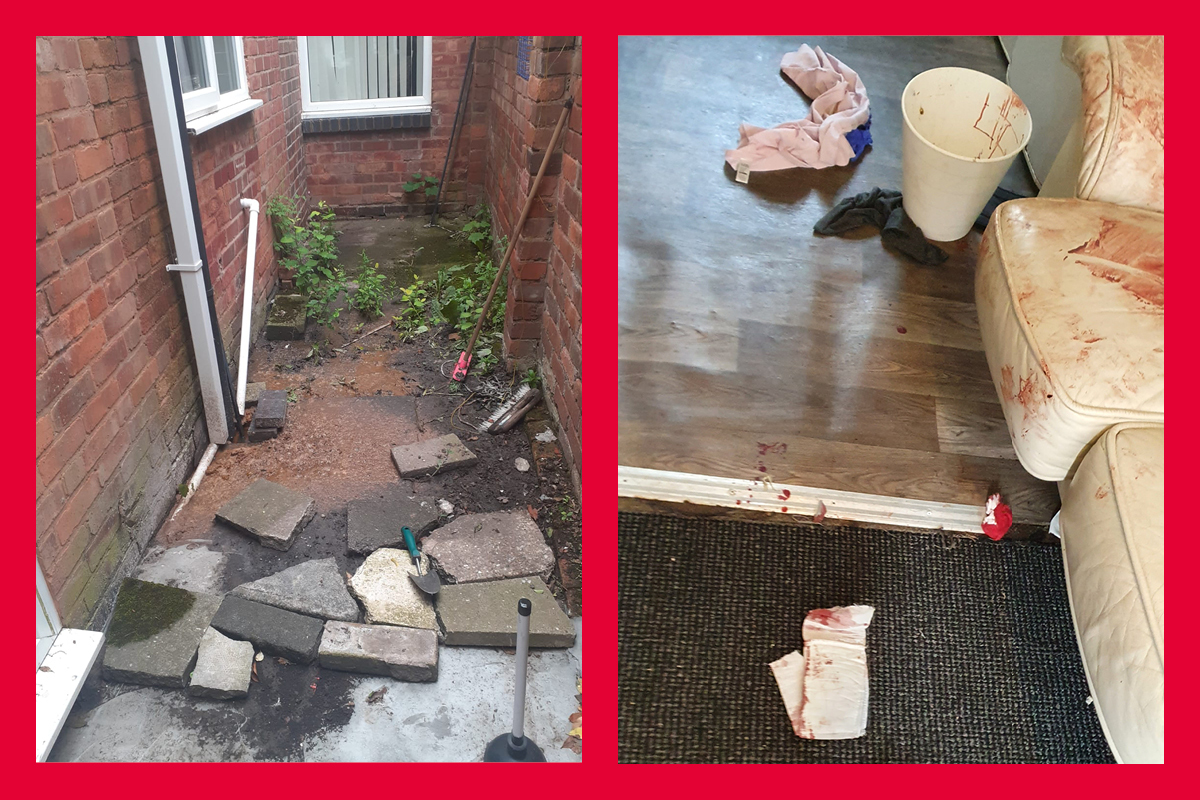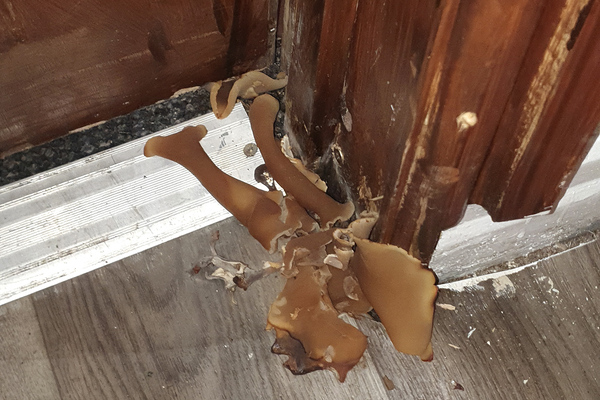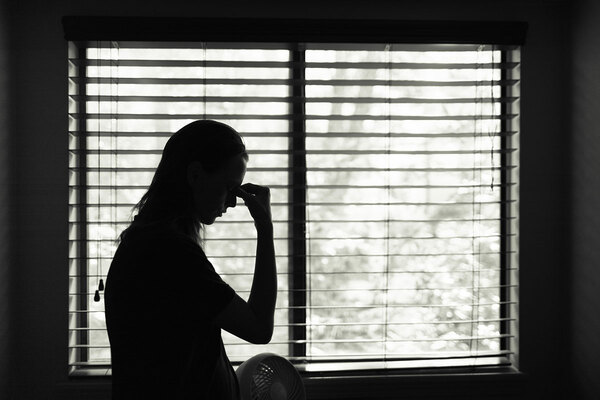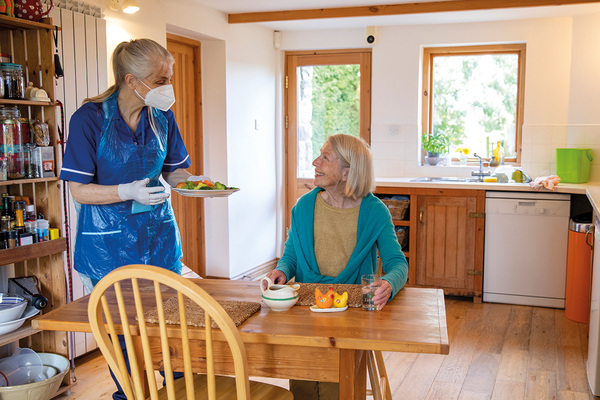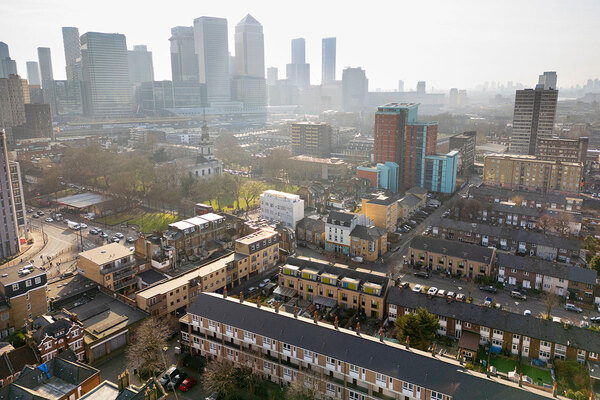Exempt accommodation investigation: the select committee’s key findings
Today, the Levelling Up, Housing and Communities (LUHC) Committee has published its much-anticipated report into exempt accommodation, which labels the system a “complete mess”. Jack Simpson outlines the key findings
After months of investigation, the much-anticipated Levelling Up, Housing and Communities Committee’s report into exempt accommodation was published today.
Exempt accommodation is a sub-sector of supported housing, often used for those who are difficult to house and have some support needs, such as prison leavers, recovering addicts, refugees and those fleeing domestic violence.
Since a small amount of support is required, this type of housing is exempt from the usual housing benefit caps, meaning providers can charge very high rent that is well above usual housing benefit levels.
In the majority of cases, it provides a crucial lifeline of accommodation for those in need.
However, instances of poor-quality provision, where tenants receive next to no support, are on the increase. And with the high rents that can be claimed, some providers are able to make huge profits off the back of these poorly treated tenants.
The growing number of reports about this issue prompted the select committee’s investigation, and the report does not hold back.
It describes exempt housing and support services as a “complete mess”.
It pointed to a patchwork of regulation, which means often the support or housing provided is never checked, with millions of pounds poured into a system that has very little oversight.
It went so far as to describe it as a “licence to print money” for those who exploit the system. And when all of the money that comes through exempt accommodation is taxpayer cash, that is a problem.
Inside Housing has pored through the 65-page document and picked out some of the key findings and recommendations.
What is exempt accommodation?
First, a quick explanation of what exempt accommodation is.
It is a type of supported housing that has been in existence since 1996. It is used to house those who are hard to house (as listed above) and is called exempt because it is exempt from the usual housing benefit caps other types of housing are subject to.
The reason for its exemption is because some support is required. However, this has become a point of contention, as case law states that this needs to be “more than minimal” or a “trifling” level of support.
This has meant that providers can provide next to no support, but still claim the higher housing benefit because they say it meets this threshold.
Commissioned exempt accommodation is provided through contracts between councils and providers. This often has greater oversight and mechanisms in place to ensure better-quality housing and support.
Non-commissioned exempt accommodation is the type largely discussed in the report. This does not involve a local-authority deal, and this is the type that has come under the microscope.
Exempt accommodation is funded mainly by the Department for Work and Pensions (DWP). A registered provider of social housing can claim, through its tenant, 100% of the exempt rent from the DWP.
For a charity or community interest company, 60% comes from the DWP, and the rest from local authority housing budgets. In some cases, this has put a lot of pressure on these budgets.
It is only in recent years that there has been a particular increase in provision and a stronger focus on it. Analysis from Crisis, the homelessness charity, found that the number of exempt accommodation households in Great Britain increased from 95,149 to 153,701 between 2016 and 2021.
Much of this growth has taken place in Birmingham, the epicentre of exempt accommodation. Exempt accommodation in the country’s second city has grown from just 3,679 places in 2014, to just under 22,000 currently.
A study by a former exempt accommodation provider estimated that the government was spending around £816m on it every year.
Exempt accommodation can provide sub-standard housing
Speaking to Inside Housing ahead of the publication of the report, Clive Betts, chair of the LUHC Committee, said that exempt accommodation was among the “worst examples of housing provision I have seen”.
There are, of course, many examples of providers offering top-quality accommodation and good levels of support, but an increasing number is responsible for provision similar to that described by Mr Betts.
The select committee report provides a lot of evidence to back that up.
A number of testimonies describe cramped and dirty conditions; in one example a property was found to have bodily fluids and faeces covering the walls.
Others described large buildings with 40 or more residents living in very small rooms with shared facilities. Inside Housing has spoken to resident who have gone months without utilities or have seen repairs and plumbing issues go unfixed despite repeated requests to landlords.
This type of housing can be unsafe, too.
A report by Hull City Council, another exempt-accommodation hotspot, found that 62% of all exempt accommodation properties failed to meet the Decent Homes Standard and, on average, there were 3.5 significant hazards per property. Birmingham painted a similar picture.
Out of 431 property inspections Birmingham carried out between November 2020 and September 2021, it found 1,120 Category One hazards in these properties. Such hazards pose a “serious and immediate” risk to a person’s health and safety.
Exploited people
People living in exempt accommodation tell many horror stories. Inside Housing spoke to two Birmingham residents who shared their experiences of bad exempt accommodation.
The select committee report was littered with them, too.
Matt Downie, chief executive of Crisis, detailed one account of a tenant who lived in a home “run by gangsters”, where support workers were often drunk and intimidated the residents.
The tenant saw theft, bullying and prostitution. Three showers were shared between 60 people in the property.
But this is not even the worst story.
In the report, there are horrific accounts of sexual assault and rape in these properties and, in the most extreme cases, murder. However, there is concern around an overly punitive response by the government, too.
The report pointed out that those who want to complain often can’t, for fear of eviction. Exempt accommodation tenants are on licence arrangements, which means they can be evicted with little warning.
Inside Housing has heard accounts of people being threatened with eviction after complaining about conditions.
Then there is the care and support. This is supposed to be the measure that allows housing benefit to be claimed above the usual caps.
However, in many cases, it is non-existent. While the report pointed out good practice, where full needs assessments were carried out and support officers were on premises every day, too often there was nothing.
Residents told the committee about support workers shouting up the stairs to check people were in, and then leaving. Eddie Hughes, the former minister for homelessness, recounted a story of a provider that left bread and jam on the table and felt that constituted support.
The select committee has recommended that the government introduce a compulsory national minimum standard for exempt accommodation, including rules around care and provision, and the quality of housing. It said it hoped councils would get additional resources to help enforce these.
However, there is a fear that a government response that is too strong and overly strict regulation could lead to good providers leaving the sector, creating a huge homelessness problem.
Domestic abuse survivors particularly vulnerable
One group of people who experienced exempt accommodation as particularly damaging was domestic abuse survivors and their children.
Again, there were examples of good specialist providers, but the report raised concerns about non-specialists providing housing for this group.
There were descriptions of large properties, sometimes with 40 to 60 people living in them, where no wraparound support is provided and which do not meet the definitions of Part 4 of the Domestic Abuse Act 2021.
Shockingly, many individuals sent to these properties to escape exploitation and violence are suffering violence, harassment and controlling behaviour from staff members.
In addition, they are being placed in risky mixes, where no thought is given to who their housemates may be. This could mean a domestic abuse survivor is placed in a house full of men, some with criminal convictions for violent crimes. The report also said these properties were often easy to find by the perpetrators of the abuse the survivors were escaping from.
In her evidence to the committee, Farah Nazeer, chief executive of the Women’s Aid Federation of England, explained why the housing provided after someone has escaped domestic violence is so important.
“It takes a woman on average seven years before she is willing, able and ready to branch out and leave a relationship. It takes a lot of courage. If we get it wrong at that one point, when they have experienced that kind of accommodation, we have lost them. They will often go back,” she said.
A regulation blindspot
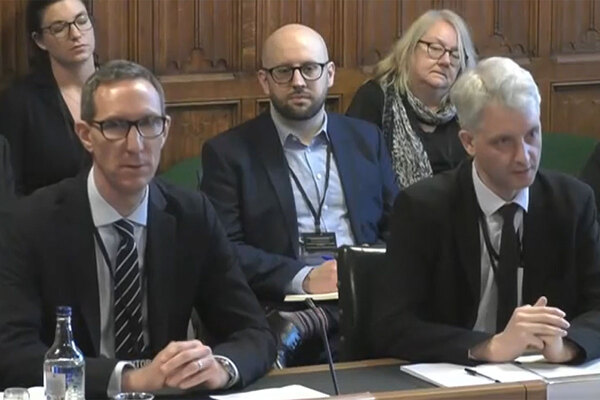
One of the biggest issues around exempt accommodation identified by the select committee is the lack of oversight for this type of provision.
Exempt accommodation is not provided by just one type of housing provider. It can be provided by housing associations, local authorities, charities, community interest groups and others.
With each of these providers coming under different regulatory bodies, it has created a patchwork of regulation for exempt accommodation.
This means providers can often go under the radar, with some escaping all regulatory oversight. As a result, they face no consequences, even if the housing and support they provide is not up to scratch.
To combat this, the committee has called on the government to come up with national standards for exempt accommodation in the next 12 months and ensure that local authorities can enforce them properly.
It says an accreditation scheme for providers should be created.
To regulate the whole sector, the committee has called for the creation of a national oversight body, which brings together regulatory bodies such as the Regulator of Social Housing, Care Quality Commission and Charity Commission, which will help address emerging trends and come up with national standards.
Exempt accommodation is costing huge sums of money with little monitoring
Exempt accommodation is almost exclusively taxpayer funded.
In an ideal world, not-for-profit providers would take the housing benefit and provide good housing and high levels of support, and this happens regularly.
However, this is not always the case. The report found evidence of “unscrupulous landlords” claiming the uncapped housing benefit and making huge profits from it.
This was laid out by the West Midlands Police, which has been dealing with such providers in Birmingham.
It explained that providers would purchase a lease on an address for around £800 a month, convert every room in the property into a bedroom, then rent out each of the five rooms for £1,000 a month, paid through the enhanced housing benefit.
The profits for this would be around £4,300 a month. This would then be used to buy or lease more properties for exempt accommodation, which would be converted to several bedrooms again, with more profit going into the providers’ pockets.
It added that, in some cases, providers were making half a million pounds in profit each month and buying properties on a weekly basis.
The report explained that some providers were maximising rent levels by using consultants to maximise claims.
Several councils said they were aware of providers using Freedom of Information requests to ascertain average rent levels, in order to work out whether it would be profitable for them to set up exempt provision in these areas.
The problem for councils is that, in order to stop excessive rent being accepted, they need to prove it is unreasonably high.
Feedback to the committee from councils explained that providers could challenge this through a tribunal. The process is costly for the council and, in most cases, would result in it losing.
The report said the narrow criteria made it a “practical impossibility” to challenge rents.
Compounding this problem, there is very little knowledge centrally about the amount of money being spent on exempt accommodation across the country.
One of the main criticisms in the report was directed at the lack of information from the DWP about spending. When the committee requested it, the DWP said the information was not readily available and to provide it would incur “disproportionate cost”.
However, we do know it is not small change. A conservative estimate from analysis carried out by Prospect Housing last year put the total cost at around £800m.
Mr Betts is concerned about the lack of information. When asked by Inside Housing, he called it “reasonably unusual” for this not to be monitored, because of the “eye-watering” sums involved.
Questions over the use of the lease-based model
Companies are not just cashing in directly through the rent charged.
The report focused on the lease-based model and issues around it. While it pointed out that this system can be used well by genuine not-for-profit providers to access the market where, because of high capital values, they could not afford to buy properties outright, there were examples of less well-intentioned uses.
Companies or investors can use landlords eligible for uncapped rent to profit through “disguised income streams” using “complex legal structures”.
In some cases, not-for-profit entities have close links to investors and have only been set up as a front for the scheme.
The report said the model also allowed for some “property market manipulation”, whereby a company buys and sells properties on the same day at great profit because of the high yields they expect to gain from leasing the properties for exempt accommodation.
Both Manchester and West Devon provided examples of this.
In Manchester, a property was bought for £575,000 and then sold for £1.8m on the same day.
Once the second transaction happened, the entity leasing the property presented it as an exempt accommodation property.
“This was then presented to us by the lessee … as a new specified accommodation scheme with a high core rent (lease rent)”.
In the West Devon example in the report, a portfolio of 12 properties were sold to a special purpose vehicle for £6m and resold to an offshore investment company for £18m on the same day.
Sign up for our care and support bulletin
Already have an account? Click here to manage your newsletters


